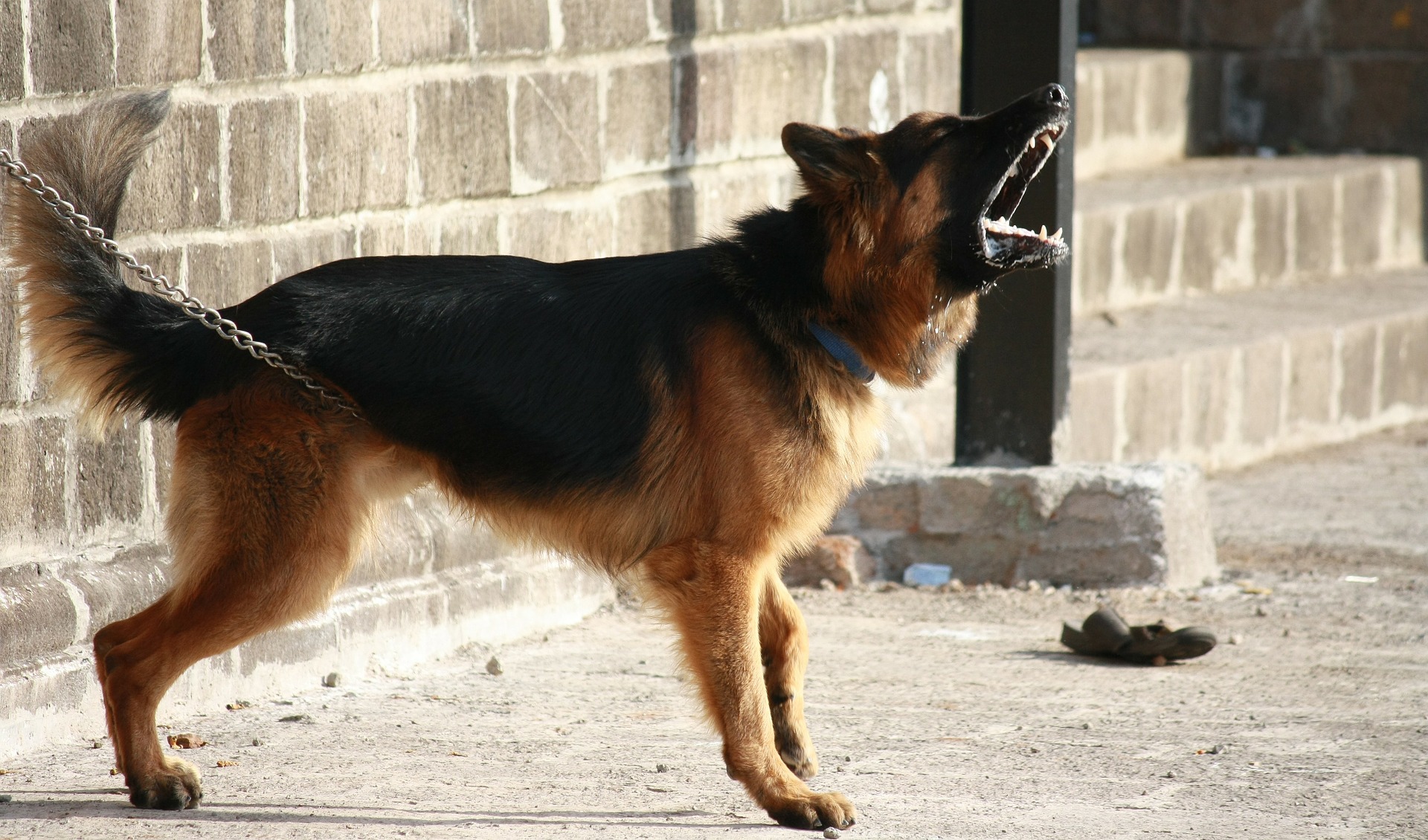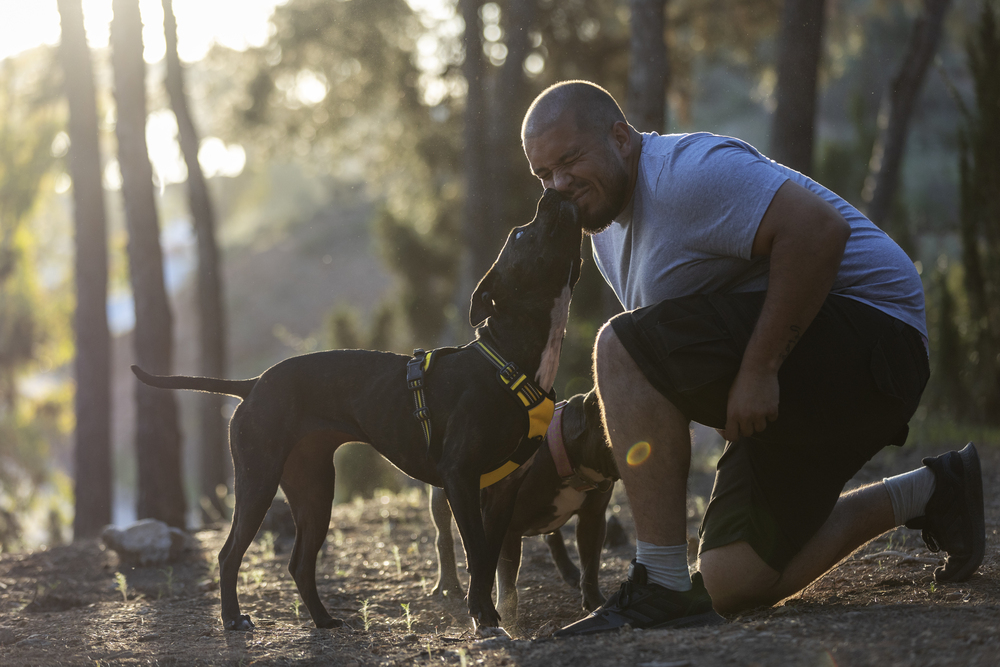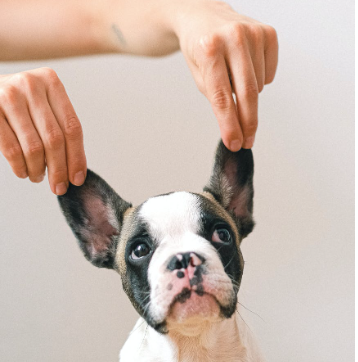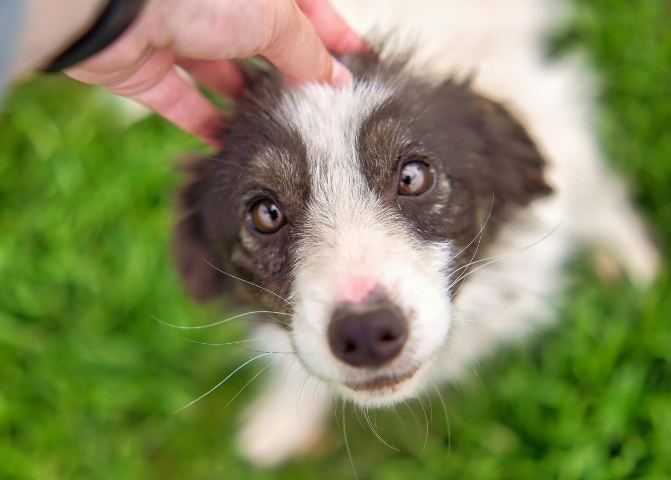
Can you not take your dog for a walk without them barking at another dog? Here we have some tips and advice on how you can teach your dog to be well-behaved on walks and to stop barking at other dogs they see.
This can be very frustrating and embarrassing when your dog harasses other families out for walks by barking at their dog. It happens to every dog at some point or another, but if it becomes a daily thing, changes must be made.
Why does my dog bark at other dogs when out walking?
There are several reasons as to why this may occur, but fear is the most common.
You and your dog walk towards a dog you may not have seen before. Your pooch may get intimidated, especially if it is on a leash as it can’t protect you or itself, so they believe the easiest way to fix the situation is to scare the dog away by barking at them. They believe barking at the other dog works as they walk on and leave when really the owner is just walking by with their dog. This could be why they continue to bark at dogs. This may not be the case, however.

Your dog could even be frustrated or excited as they see the new dog as a new friend. The barking could be because they want to play with their exciting new friend but they end up having to walk on past. This could frustrate your dog, causing them to bark. As the owner, you should try to read your dog's emotions and figure out whether they are barking out of fear or frustration. It will be easier for you to prevent in the future if you know.
Tips and Training your dog to stop barking at other dogs
Here are a few simple strategies you can engage in to help reduce the likelihood of your dog repeating this behavior again.
Avoid telling your dog to sit- this may not be a good idea especially if your dog is barking out of fear, as this will heighten their anxiety. If you make them sit close to you and stay, they can feel even more threatened and unable to protect their handler or themselves.

Instead of this command, try to distract your dog by doing other activities that they find fun. Once your dog is happy and having a good time, the other dog will barely cross their mind.
Make your walk a fun challenge for your dog- if your dog is occupied the whole duration of the walk with some fun training games or exercise obstacles, they won't pay any attention to anything or anyone passing by.
This strategy has lots of benefits like your dog will look forward to walks even more because he knows he will have fun. It will also tire out your dog making them less restless in the evening times. This will help them release lots of energy and get plenty of exercises.
Find a quieter walking route- if possible, it may be best to avoid the areas where lots of dogs walk if it makes your dog anxious or fearful. Walking in a busy area with lots of dogs could trigger your dog’s behavior.
It is also a good idea to keep alert for other dogs that may be coming, and then make some distance between them and your dog by crossing the road or turning onto another trail.
Keep calm and your dog should too- your dog can sense when you are anxious. Therefore if you start to feel anxious when another dog approaches because of how your dog reacts, this may make your pooch anxious also. Keeping calm is especially important if your dog is scared. If they feel you are scared too, this will only make things worse.
Don’t pull them back with the leash- for many, our first instinct is to pull our dog back with the leash when they bark at another dog. We do this to get them away, but it isn’t the best idea. Doing this teaches our dog that going up to another dog should be feared and is bad.
Consider using a clicker- clicker training is a great way to train your dog what's right and what's wrong. It is also quite simple to train. If you would like to know more on how to use clicker training with your dog click here.
If your dog has been clicker trained, you should incorporate this into training them not to bark at other dogs. For example, if they didn’t bark for one day, click and give a treat. It is also essential that you bring treats with you on walks as they will eventually learn that they will be rewarded when they keep calm and not bark.
How long should you do these things for?
Generally speaking, do it for as long as you need to, there is no time limit. You may benefit from training for a few months so your dog becomes fully used to not barking. For some dogs, however, you may need to always follow the steps that work for you. This is fine also, all dogs are different and some can just be more anxious or frustrated than others. I hope this helped!












